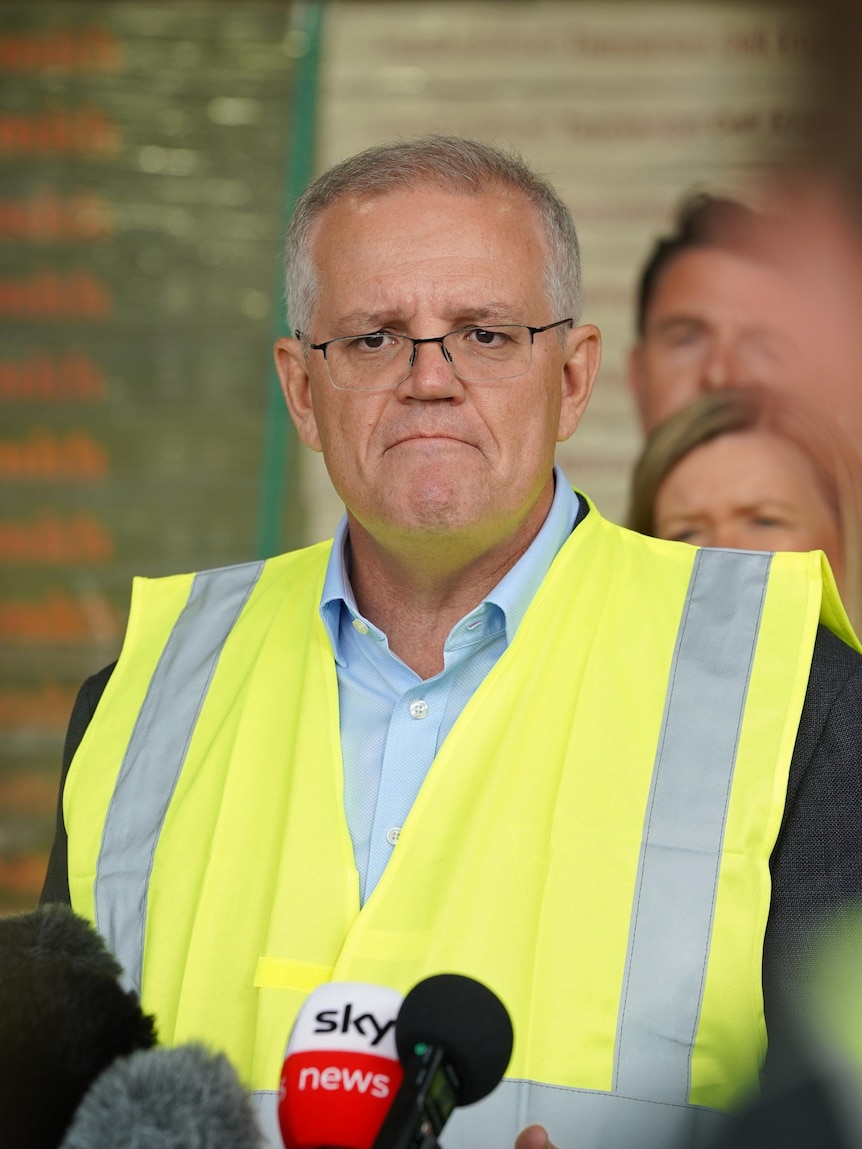A quick recap on the ICAC debate
Political reporter Matthew Doran has been covering the anti-corrutpion commission debate since it came around before the last election, here’s his take on the questions put to Scott Morrison this morning.
The Prime Minister has copped a barrage of questions on why Australian voters should trust him, considering there is still no national anti-corruption commission.
Scott Morrison took a pledge to establish a national integrity watchdog to the 2019 election.
Three years later, it has not been achieved.
Scott Morrison insists the fault lies with Labor – that he would only push ahead with his proposed model for the Commonwealth Integrity Commission (CIC) with the express support of the federal Opposition.
There’s a problem with that argument, and it lies in the legislative sausage making process.
Bills are regularly, if not routinely, introduced to Parliament without having bipartisan support beforehand.
An opposition party not backing a piece of government legislation before it lobs into the House of Representatives or the Senate for debate is not a radical idea.
In fact, the Coalition introduced legislation to expand the powers of the Immigration Minister to deport people from Australia without the support of Labor – and it tried repeatedly to ram it through parliament, only to drop it from the agenda in the dying days of the 46th parliament.
The Prime Minister also regularly uses the argument that he did “table” the legislation for the CIC in the House of Representatives, when questioned about why the proposal was never introduced.
Tabling a document is a vastly different prospect to a introducing legislation.
Introducing legislation kickstarts the process of lawmaking – the bill can be debated, it can go through amendments, and a final position can be arrived at to ensure that proposal becomes the official law of the land.
The Prime Minister could table the menu from a cafe if he wanted – it does not mean debate ensues on the merits of a chicken schnitzel burger, regardless of how well regarded it may well be in the halls of power.
‘Tabling’ a document merely reads it in to the official parliamentary record.
The Coalition’s CIC model has been hit with criticism for being a toothless anti-corruption watchdog, shrouded in secrecy – which are also the main planks of Labor’s opposition to the bill.
Labor will not support the Coalition model, devised by former attorney-general Christian Porter – so, it’s effectively dead in the water.
Labor says it’s model would have a broader jurisdiction than the Coalition’s – meaning it could look at more instances of alleged corruption.
It also wants the Commission to have the power to start its own investigations, rather than wait on referrals, worried without that power, it will be hamstrung.
The other key demand of the opposition is for the ability to hold public hearings where the commission sees fit – including for politicians – the idea being sunlight is the best disinfectant.
This is something the Coalition hasn’t been keen on, citing the media circus or “kangaroo court” – to use the Prime Minister’s phrasing – that the NSW ICAC has been criticised as devolving into.




